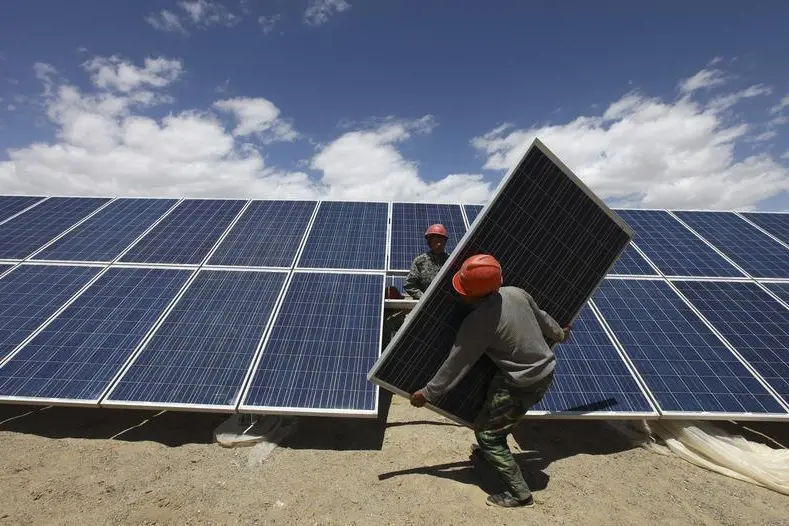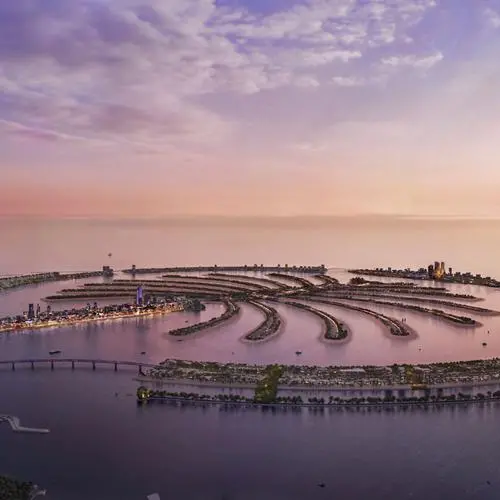PHOTO
OPEC members Iraq and Algeria, among the largest Arab economies and hydrocarbon powers, are pushing ahead with plans to utilise their massive solar power potential but both of them are facing tough challenges involving coronavirus, budgetary constraints due to low oil prices and other domestic problems.
Iraq's problems are far bigger as the country, which controls the world's 5th largest crude oil deposits, has suffered from wars, domestic political turmoil, destruction of many key utilities, and lower oil prices and output.
In a report released on Tuesday, the Dubai-based Middle East Solar Industry Association (MESIA) said Iraq has suffered from electricity shortages due to previous destructions and insufficient replacement facilities for several years.
The main effort in the country focused first on additional gas-fired capacity, the report, titled Solar Outlook Report 2021 said, adding that Iraq has vast solar energy potential.
It noted that a 2018-2022 plan approved by the government after the war has an objective of 1-Gigawatt (GW) of solar energy and that solar rooftop pilot projects on government-owned buildings were also planned for 8 GW.
A specific draft law for renewable energy was submitted to the Ministerial Energy Council for review in early 2019, it said, adding that the law aims, among many objectives, to encourage the public and private sector to participate in developing renewable energy but that it still has to be submitted to the Parliament.
The report said Iraq, which sits atop 145 billion barrels of oil, has some renewable energy projects in the pipeline but that it faces serious challenges and obstacles that have forced it to rely heavily on imported energy supplies.
"Power shortages remain one of the biggest challenges for Iraq and a key component of the next government plan for a socio-economic development and reconstruction program. The country still suffers from a continuous burden of importing most of its electricity from Iran and is currently seeking to lower its dependency," the report said.
"Renewable energy and solar projects have started to emerge to help meet electricity needs. However, COVID19, low oil prices and the expected huge deficit in 2020 federal budget, have heavily impacted Iraq's new renewable energy plans, as the country is expecting tough economic measures and huge budget cuts in 2020-2021."
According to the report, the current situation puts the emphasis on energy security and could encourage Iraq to diversify more its renewable energy mix. Adequate incentives and framework are being progressively put in place even though the policy and draft law for renewable energy has still not been adopted, it added.
Algeria's subsidy challenge
In Algeria, which controls the world's 6th largest gas reserves, about 98 percent of electricity still comes from natural gas, the MESIA report said.
However, the largest Arab country is blessed with solar energy, with one of the highest solar potentials estimated at 13.9 TWh per year, it said.
The report noted that diversification has become an important economic objective in Algeria like in many countries of the region and that it has set objectives of at least 22 GW of power from renewable resources by 2030.
"Initiatives taken in the past to foster the development of solar energy have faced several difficulties and the pace of implementation has been slow. Total renewable capacity has not grown the last couple of years but is still modest with 342 MW mostly from solar in 2019. Different measures have been put in place recently to create a more conducive environment to launch new projects," MESIA said in the report.
Key challenges facing the North African country to develop renewable energy projects include difficulty to mobilize interest from the solar industry, according to the report.
It said most of the obstacles were related to lack of competitiveness with subsidised hydrocarbons, regulatory and financial framework for foreign investors and foreign investment cap at 49 percent and reluctance of local banks to support investments.
"Different measures have been taken to create a more conducive environment, including giving more attention to decarbonisation and other measures."
The report noted that Algeria has announced a number of solar energy projects over the past few years comprising a total of 10 plants across different locations.
"The projects were awarded, and contracts were signed.... However, construction has not yet started," the report said.
Turning to Algeria's domestic problems, the report noted that 2020 was marked by continuous and increasing economic difficulties for the country.
In one year, unemployment rates rose to 15 percent from 11.4 percent while Algeria forecasts $10 billion in lost revenue in 2020 due to the fall in energy prices.
Foreign reserves at the end of the year stood at around $58 billion, less than one-third of 2013's record $195 billion, which means the country's budget deficit is set to double from 2019 to this year.
"The country's financial pressures induced cuts in public spending and delays of planned projects, including the energy sector. In this context, access to finance and investment for renewable projects may remain an issue," the report said.
MESIA quoted a report by the Abu Dhabi-based International Renewable Energy Agency (IRENA), which believes that strengthening collaboration between international renewable energy developers and Algeria's industry is necessary for renewable sector market players to engage and foster the development of its solar energy.
"Recent announcements of new investment into local production of mounting structures for PV systems are encouraging signs," MESIA said.
"In the long term, it is certainly the revision of Algeria's energy pricing and subsidy policy that could be a decisive trigger to enabling the country to make full use of its large solar energy potentials."
(Writing by Nadim Kawach; Editing by Anoop Menon)
(anoop.menon@refinitiv.com)
Disclaimer: This article is provided for informational purposes only. The content does not provide tax, legal or investment advice or opinion regarding the suitability, value or profitability of any particular security, portfolio or investment strategy. Read our full disclaimer policy here.
© ZAWYA 2021





















